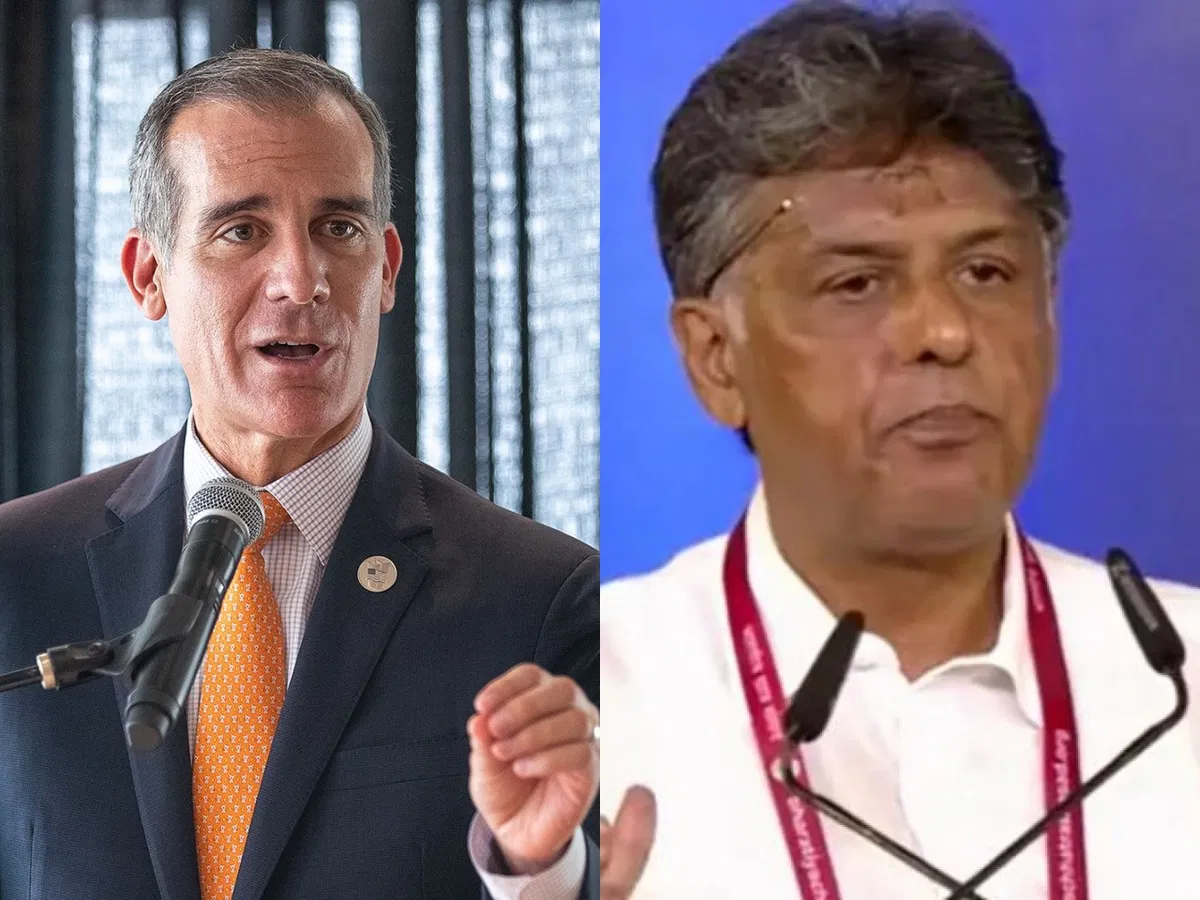The Supreme Court has recently reprimanded a petitioner in the Hindenburg case for confusing past investigations conducted by the Securities and Exchange Board of India (SEBI) with the ongoing matter. During the court hearing, the petitioner demanded SEBI to disclose the outcome of its 2016 and 2020 probes. However, SEBI’s lawyer, Tushar Mehta, objected to this request, highlighting terns about potential violations committed by the Adani Group,  prompting the sessing the specific allegations against the Adani Group, urging the court to refrain from linking unrelated matters.
prompting the sessing the specific allegations against the Adani Group, urging the court to refrain from linking unrelated matters.
Supreme Court to direct SEBI to investigate the matter within a specific timeframe. The court’s directive aimed to address any possible infractions preceding and subsequent to the release of the Hindenburg report on the Adani Group.
SEBI’s Distinct Probes and Objection to Mixing Cases
SEBI’s lawyer, Tushar Mehta, firmly objected to the petitioner’s demand to disclose the outcomes of SEBI’s 2016 and 2020 probes. He emphasized that the previous investigations involving 51 Indian companies were entirely unrelated to the Hindenburg case and had no connection to the Adani Group. Mehta highlighted the importance of maintaining clarity and precision in as
Court’s Ruling and Timeline for Investigation
Chief Justice DY Chandrachud addressed the petitioner’s lawyer, Prashant Bhushan, who had requested access to the SEBI reports from 2016 and 2020. The Chief Justice clarified that the ongoing proceedings solely pertained to the Hindenburg case. He explained that the 2016 probe centered around the issuance of global depository receipts (GDR), while the 2020 investigation focused on potential violations of the minimum public shareholding (MPS) rule. This clarification ensured that the court maintained a clear and focused approach to the current matter.
Additionally, the Supreme Court granted SEBI an extended timeline of three months to complete its investigation in the Hindenburg case. While SEBI had initially sought six more months, the court declined the request. Chief Justice Chandrachud instructed SEBI to submit a status report on its progress by August 14. Based on this report, the court will determine whether further time is necessary for the completion of the investigation, as requested by SEBI’s lawyer during the recent hearing.
Collaboration with Domain Experts and Future Steps
The Supreme Court also mentioned the involvement of a panel of domain experts appointed by the court to examine India’s regulatory mechanisms for protecting investors. The panel has already submitted its report and will continue to assist the court by sharing the findings with all relevant parties and their legal representatives involved in the Hindenburg case. This collaborative effort ensures a comprehensive and informed approach to address investor concerns and safeguard the integrity of India’s financial markets.
The Supreme Court’s reprimand of the petitioner for confusing past SEBI investigations with the ongoing Hindenburg case clarifies the specific focus of the current proceedings. The court’s ruling provides guidance on the scope of SEBI’s investigation and sets a timeline for its completion. By maintaining clarity and precision, the court aims to address the allegations against the Adani Group effectively. The involvement of domain experts further enhances the court’s ability to ensure a comprehensive examination of India’s regulatory framework. As the investigation progresses, it is essential to uphold transparency, fairness, and adherence to legal
The Hindenburg case continues to generate significant attention and scrutiny as the Supreme Court’s directives shape the trajectory of the investigation. With the court reprimanding the petitioner for conflating past SEBI probes with the current case, it has become imperative to maintain clarity and focus on the specific allegations related to the Adani Group.
During the recent court hearing, the petitioner insisted on SEBI disclosing the outcomes of its 2016 and 2020 investigations. However, SEBI’s lawyer, Tushar Mehta, vehemently objected to this demand, emphasizing that the previous probes had no connection to the Hindenburg case or the Adani Group. It is crucial to separate these different investigations to ensure a fair and accurate evaluation of the specific allegations under scrutiny.
Chief Justice DY Chandrachud echoed Mr. Mehta’s objections and underscored the need to concentrate solely on the Hindenburg case. He clarified that the 2016 investigation centered around the issuance of global depository receipts (GDR), while the 2020 investigation pertained to the violation of the minimum public shareholding (MPS) rule. This clarification reinforces the need to avoid any confusion and to focus solely on the allegations at hand.
Moreover, the Supreme Court has granted SEBI an additional three months to complete its investigation in the Hindenburg case. SEBI had initially requested a six-month extension, citing the involvement of cross-border jurisdictions and the complexity of the matter. However, the court decided to grant a shorter extension, emphasizing the importance of expediency while ensuring a thorough examination.
Chief Justice Chandrachud has instructed SEBI to submit a status report of its investigation by August 14, providing the court with valuable insights into the progress made. This report will play a pivotal role in determining whether further time extensions are necessary. The court’s commitment to monitoring the investigation closely demonstrates its dedication to upholding accountability and timely resolution.
It is noteworthy that the Supreme Court has already established a panel of domain experts to examine India’s regulatory mechanisms for investor protection. This panel has submitted its report, which will aid the court in making informed decisions. The report will also be shared with all relevant parties, ensuring transparency and allowing for a comprehensive understanding of the regulatory landscape.
As the case progresses, it is crucial for all parties involved to cooperate fully with SEBI’s investigation. The petitioner, the Adani Group, and their respective legal representatives should provide any pertinent information or evidence that can assist in the fair and objective evaluation of the allegations. Openness, transparency, and adherence to legal procedures are fundamental to ensuring a just outcome.
The Hindenburg case serves as a reminder of the critical role played by regulatory bodies such as SEBI in safeguarding investor interests and maintaining market integrity. As India’s capital markets continue to evolve, robust regulatory frameworks are vital to inspire trust, encourage investment, and foster sustainable economic growth. The ongoing investigation should not only address the specific allegations against the Adani Group but also contribute to the continuous improvement and strengthening of regulatory mechanisms.
The Supreme Court’s reprimand of the petitioner for confusing past SEBI investigations with the Hindenburg case reaffirms the need for clarity and precision. By establishing a timeline for SEBI’s investigation, involving domain experts, and emphasizing transparency, the court aims to ensure a comprehensive evaluation of the allegations against the Adani Group. The commitment to timely resolution, adherence to legal principles, and protection of investor interests will guide the court’s decisions as the investigation progresses. Ultimately, a fair and just outcome will contribute to upholding the integrity of India’s capital markets and instilling confidence among investors.
The Hindenburg case has captured widespread attention and sparked discussions on the importance of regulatory oversight and transparency in the corporate sector. The Supreme Court’s involvement and its commitment to a thorough investigation reflect the judiciary’s role in upholding the rule of law and ensuring accountability.
The Adani Group, one of India’s largest conglomerates, has been at the center of this controversy. As the investigation progresses, it is crucial to maintain an objective approach and allow the legal process to unfold without prejudice. The allegations against the Adani Group must be examined meticulously, and any evidence presented should be evaluated based on its merit and relevance.
The extension granted to SEBI highlights the complexity and intricacies of cross-border financial transactions. Investigating such cases requires meticulous attention to detail, coordination with international regulatory bodies, and the cooperation of various stakeholders. The Supreme Court’s directive for SEBI to submit a status report by August 14 underscores the court’s commitment to timely resolution and provides an opportunity for all parties involved to present their case.
The role of regulatory bodies like SEBI is crucial in maintaining market integrity and investor confidence. As the apex authority responsible for overseeing the securities market in India, SEBI plays a pivotal role in safeguarding the interests of investors and ensuring fair practices. The investigation into the Hindenburg case presents an opportunity for SEBI to demonstrate its diligence, transparency, and commitment to upholding the highest standards of regulatory oversight.
It is important to note that the Adani Group has consistently denied any wrongdoing. As the investigation progresses, it is essential to respect the principle of “innocent until proven guilty” and refrain from drawing premature conclusions. The legal process will provide a platform for the Adani Group to present its defense and address the allegations leveled against it.
This case also highlights the significance of corporate governance and the need for companies to maintain robust internal control mechanisms. Transparency, accountability, and adherence to ethical practices are vital for fostering a healthy business environment. Companies should proactively engage in self-regulation, ensuring compliance with applicable laws and regulations while upholding the highest ethical standards.
As the Hindenburg case unfolds, it serves as a reminder that no entity or individual is above the law. The judiciary’s involvement, coupled with the impartiality of the investigation, will determine the course of justice. The outcome of this case will not only impact the reputation of the Adani Group but will also set a precedent for corporate governance and regulatory enforcement in India.
In conclusion, the Hindenburg case represents a significant legal challenge that requires a fair, thorough, and impartial investigation. The Supreme Court’s reprimand of the petitioner for mixing up past SEBI probes with the current case reinforces the importance of clarity and precision in legal proceedings. The extension granted to SEBI provides an opportunity for a comprehensive examination of the allegations against the Adani Group. As the investigation progresses, it is crucial to uphold the principles of transparency, adherence to the rule of law, and protection of investor interests. The outcome of this case will not only impact the parties involved but will also shape the landscape of corporate governance and regulatory oversight in India.

















